MercoPress. South Atlantic News Agency
Agriculture
-
Friday, June 4th 2021 - 09:10 UTC
JBS US branch attacked by hackers paralyzing meat processing in US, Canada and Australia

United States branch of Brazilian giant meat processor started to return to a plant in Texas, but with new instructions, get ready to do things a bit differently than normal: work by hand.
-
Thursday, June 3rd 2021 - 08:28 UTC
Brazil excels at agrifood production and exports, study reveals
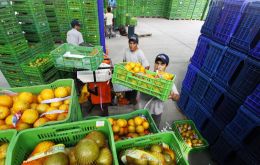
A study released Wednesday by the Brazilian Agricultural Research Company (Embrapa) of the national Ministry of Agriculture, Livestock and Supply showed the country was the world's fourth-largest grain producers in the world, it was announced.
-
Thursday, June 3rd 2021 - 08:05 UTC
Japan eases controls on Paraguayan shipments of chia thanks to flawless quality
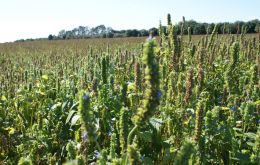
Japan's Ministry of Health, Labor and Welfare have announced that controls for the presence of aflatoxins in chia imported from Paraguay were to become less strict, in light of the improvement in the quality and safety now duly recorded.
-
Wednesday, June 2nd 2021 - 05:13 UTC
Southern states of Brazil free of foot and mouth disease without vaccination

Four additional Brazilian states have been recognized as free of foot-and-mouth disease without the need for vaccinations, by the World Organization for Animal Health, OIE.
-
Tuesday, June 1st 2021 - 09:10 UTC
Drug gang violence results in 9 deaths in Colombia
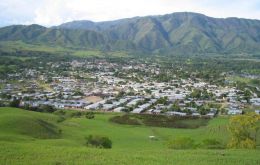
Nine people died Monday after armed men broke into a coffee farm in the municipality of Algeciras, in southern Colombia, and “ended the lives of eight men and one woman,” the Ombudsman's Office reported. The victims were coffee pickers, it was informed.
-
Monday, May 31st 2021 - 09:37 UTC
Argentine government not fair with milk producers
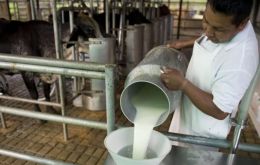
As tensions between the Government of President Alberto Fernández and rural producers seem to be focused on the 30-day ban on meat exports, the Argentine Rural Confederations (CRA) issued a statement this weekend headed “Does the milk producer not matter?”
-
Wednesday, May 19th 2021 - 09:45 UTC
Argentine meat processing plant closes after ban on exports: agri-food producers go on strike
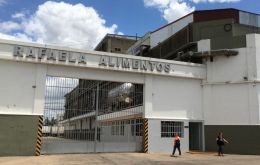
The Rafaela Alimentos meat processing plant in Casilda in the province of Santa Fe Tuesday closed down temporarily in response to the ban on exports decreed by the Argentine Government of President Alberto Fernández. The company employs 650 workers.
-
Tuesday, May 18th 2021 - 09:44 UTC
Argentina bans meat exports for 30 days in an attempt to curb inflation
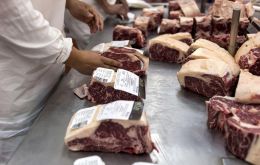
The Argentine government of President Alberto Fernández has announced all meat exports will be banned for the next 30 days in an attempt to slow down inflation as domestic prices went up 20% owing to foreign demand.
-
Thursday, May 13th 2021 - 08:46 UTC
Will Argentina squeeze exporters as soybeans rise above US $ 600 in Chicago?
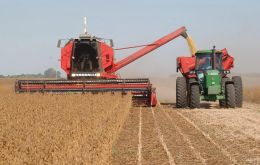
Argentine economists are eyeing the recent increase in the international price of soybeans as some sort of light at the end of the tunnel following a severe recession, high indebtedness amid the coronavirus pandemic.
-
Thursday, May 6th 2021 - 23:59 UTC
Falklands economy boasts healthy trade surplus but income inequality increases

The value of goods exported from the Falkland Islands recorded a compound annual growth rate of 8.1% between 2010 and 2019, according to the Falkland Islands Government’s State of the Economy report.